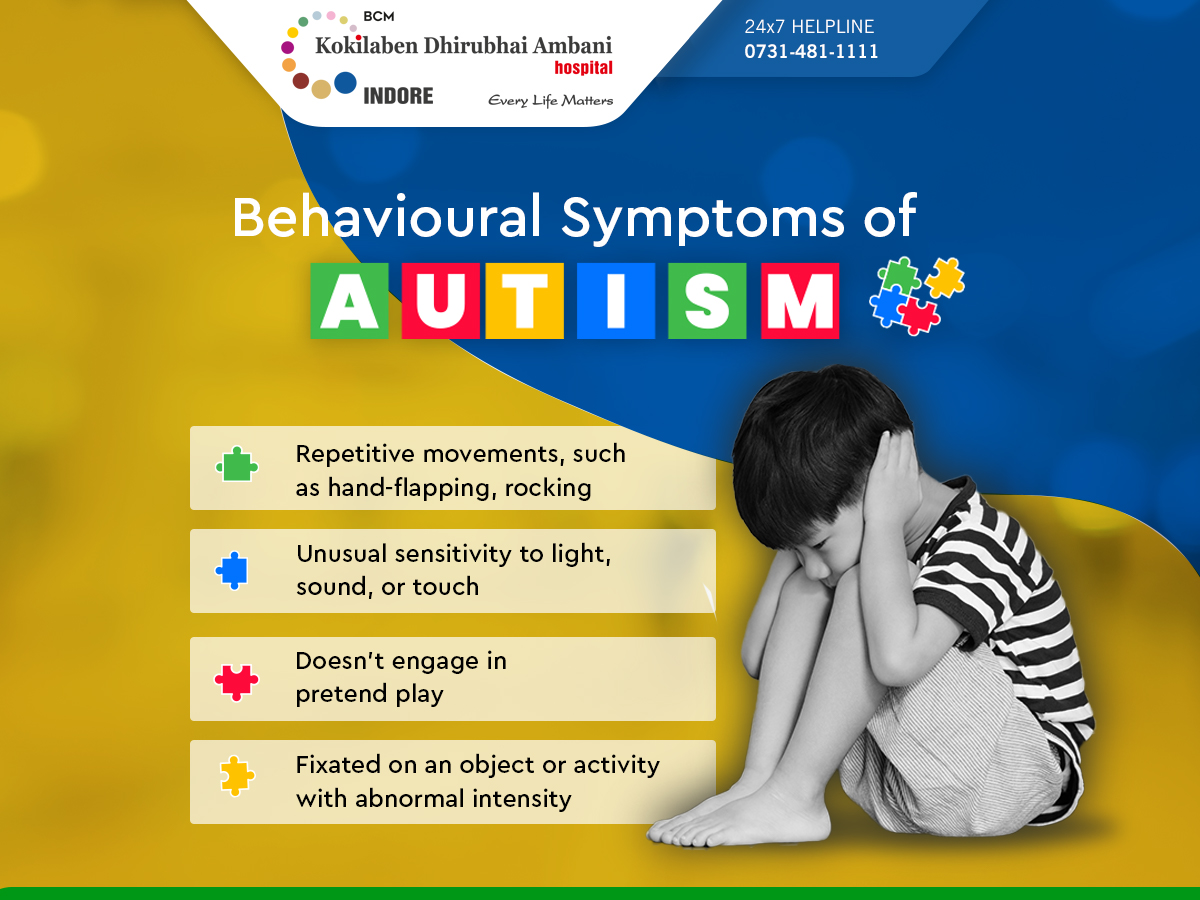Best practices for building sensory-friendly spaces with advice from an Autism Therapist
Best practices for building sensory-friendly spaces with advice from an Autism Therapist
Blog Article
Key Indications and Signs to Acknowledge in Individuals With Behavioral Autism
When you experience someone with behavior autism, acknowledging essential signs and signs and symptoms is crucial. Furthermore, sensory sensitivities can lead to frustrating experiences.
Difficulties in Social Interactions
When you connect with somebody on the autism spectrum, you could discover they battle with social signs and communication. These obstacles can make social interactions feel frustrating for them. You may see them staying clear of eye get in touch with or standing too close or as well away throughout conversations, which can develop misunderstandings. They might not detect body language or faces, making it harder for them to evaluate just how others are really feeling.
When they do involve, they might talk regarding their rate of interests in wonderful information without noticing if you're interested. Understanding these difficulties can assist you approach communications with compassion and perseverance, fostering a more comfortable environment for both of you.
Difficulty With Verbal and Non-Verbal Communication

Non-verbal interaction can be even more tough. You may see an absence of eye get in touch with or limited usage of gestures, which can make communications feel uncomfortable. Faces may not constantly line up with the discussion, resulting in complication regarding their sensations. Recognizing these indicators is vital, as it helps you much better assistance and engage with people on the autism range. By comprehending their interaction challenges, you can cultivate more significant links and offer an extra supportive atmosphere.
Repeated Habits and Regimens
Communication difficulties usually go along with various other indicators of autism, such as repetitive habits and a strong choice for regimens. You could see that individuals with autism frequently take part in certain, repetitive activities, like hand-flapping, shaking, or duplicating expressions. These actions can provide comfort and a sense of control in a typically overwhelming world.
Routines are similarly crucial; several people grow when they adhere to an organized schedule. You may find that changes to these regimens can bring about substantial distress. If they have a daily routine of consuming breakfast at a specific time or following a particular course to institution, any disturbance can create stress and anxiety.
Acknowledging these patterns aids you comprehend their habits and provide support. By suiting their need for regular and permitting recurring activities, you can create an extra comfortable environment that reduces their challenges.
Sensory Level Of Sensitivities

Common Sensory Triggers
Sensory level of sensitivities can significantly affect life for individuals with autism, as specific stimuli commonly cause frustrating responses. Usual sensory triggers consist of loud noises, brilliant lights, and solid smells. You could discover that sudden audios, like alarm systems or alarms, cause stress and anxiety or distress. In a similar way, fluorescent illumination in shops can really feel uneasy and extreme. Appearances can likewise play a significant role; rough materials or particular food appearances may be intolerable for you. Additionally, crowded places can overwhelm your senses, making it difficult to relax or focus. Understanding these triggers can assist you manage your atmosphere better. By recognizing what impacts you, you can take actions to lessen pain and enhance your everyday experiences.
Behavioral Reactions Discussed
Comprehending your behavioral responses to sensory level of sensitivities is important, as they frequently reveal just how you engage with the world. You might see that particular noises, lights, or textures overwhelm you, leading to stress and anxiety or discomfort. When encountered with these stimulations, you might take out, cover your ears, or even react strongly. These responses aren't just traits; they're your means of dealing with overstimulation. You may also locate yourself looking for certain sensory experiences, like deep pressure or silent atmospheres, to help ground on your own. Recognizing these patterns aids you comprehend your demands much better and can guide just how you communicate them to others. By recognizing your sensory sensitivities, you can function towards developing an atmosphere that really feels much more comfy and workable for you.
Coping Techniques Review
Recognizing your sensory sensitivities is simply the initial step; now it's time to check out coping approaches that can help you handle those experiences Click Here effectively. Begin by developing a sensory toolkit customized to your needs. This could include noise-canceling earphones, fidget playthings, or relaxing scents. Establishing an organized regimen can also offer predictability, minimizing anxiety around sensory overload. When you feel overwhelmed, take breaks in a peaceful room to collect yourself. Practicing mindfulness strategies such as deep breathing can aid ground you in the minute. In addition, communicate your needs with those around you; having helpful buddies and family can make a substantial distinction. Keep in mind, discovering what works finest for you may take some time, so be patient and open to trying brand-new strategies.
Limited Rate Of Interests and Focus
While many people establish a wide variety of passions, those with autism usually show restricted interests and an extreme concentrate on specific subjects. You might see that a person with autism can spend hours diving into their favorite topic, whether it's a specific sort of train, a details motion picture, or a scientific principle. This intense emphasis isn't just a leisure activity; it can end up being a central component of their identity and social communications.
You may discover that conversations focus on these interests, and they might struggle to involve in broader subjects. For them, these focused rate of interests provide convenience and a sense of proficiency. While it is necessary to motivate expedition of new topics, respecting their enthusiasms is just as necessary. By understanding and acknowledging these limited interests, you can cultivate a supportive atmosphere where they really feel valued and understood, enabling more significant links and interactions.
Psychological Regulation Problems
People with autism commonly encounter obstacles in psychological law, which can be affected by their intense focus on particular interests. You might see that when a person is deeply taken part in a favored activity, they can experience strong emotions, whether exhilaration or frustration. When points do not go as prepared., this intensity sometimes makes it hard for them to change equipments or handle their feelings - go to this web-site Aba Therapist.

Irregularity in Developing Milestones
When it comes to developing landmarks, you'll see that individuals with autism frequently show a large array of irregularity. You might see a kid stand out in language abilities yet battle with social interactions.
It's important to recognize that each individual's journey is unique. Observing these patterns can aid you understand their staminas and requires better.
Often Asked Inquiries
Just How Is Autism Diagnosed in Kid and Adults?
To diagnose autism in adults and kids, experts assess behavior, communication skills, and social communications. They typically utilize standardized tests, interviews, and observations to identify if a private meets the standards for autism range problem.
Are There Different Kinds Of Autism Range Disorders?
Yes, there are different sorts of autism spectrum disorders, consisting of Asperger's disorder and pervasive developing disorder-not otherwise specified. Each kind varies in intensity and qualities, so recognizing these distinctions can assist you far better support individuals with autism.
What Treatments Are Effective for People With Autism?
When considering efficient treatments for people with autism, you'll locate options like Applied Behavior Evaluation, speech therapy, and work treatment. Each approach can assist enhance interaction, social skills, and everyday working customized to individual needs.
Can Individuals With Autism Lead Independent Lives?
Yes, people with autism can lead independent lives. With the appropriate support, skills training, and resources, you can assist them create self-sufficiency, manage daily tasks, and flourish in different settings, fostering their independence.
Exactly How Can Families Support Loved Ones With Autism?
You can support your liked ones with autism by producing an organized setting, urging their passions, exercising perseverance, fostering communication, and promoting social skills. Commemorate their achievements, regardless of how small, and build a supportive community.
Although numerous individuals on the autism spectrum can use and understand language, they typically deal with considerable challenges with both non-verbal and spoken interaction. Identifying these indicators is necessary, as it aids you much better support and engage with people on the autism range. You may discover that individuals with autism frequently Discover More Here engage in particular, repeated activities, like hand-flapping, shaking, or duplicating phrases.Sensory sensitivities can significantly affect everyday life for people with autism, as specific stimuli typically set off overwhelming responses.When it comes to developing turning points, you'll notice that people with autism commonly show a wide array of variability.
Report this page